I think my cat died two days ago. Let me start over: I know my cat died two days ago. The reason I said “I think” isn’t because I’m stuck in the stage of grief called denial, but because it happened in such a romantic, perfectly scripted movie-ending sort of way, a way I’d never heard of before, that I have trouble believing it.
Nearly twelve years ago, Steve and I went to the local rescue shelter to get a kitten. We came home with a three-year-old neutered male named Spike (and immediately renamed him Barney). Adopting Barney was one of the easiest decisions we’ve ever made. Barney was sweet-tempered and nurturing. All the little kittens came up to him to be groomed or to snuggle in his warm comfort. The kittens would likely be adopted by others; we couldn’t let this beautiful creature be put to sleep.
The first day with us, Barney didn’t leave the protection of his litter box. The next day, he ventured to the edge of the porch. Next day, he jumped up on the banister and slid down to the patio–the last time he went down that way. Then his world grew to include our back yard. There was no stopping him after that.
Barney made the rounds in the neighborhood, walking all the way up to the main road. He had his usual route and kept to his time schedule. I’d watch him politely walk up driveways and sit on front stoops. Neighbors would tell me, “Your cat came to visit me yesterday.” He’d walk in the park beside me, wait by the garage for me to come home. Barney was an unusual cat.
He was happy with us, but one thing was missing in his life. He didn’t have little kittens to watch over and teach the ropes to anymore.
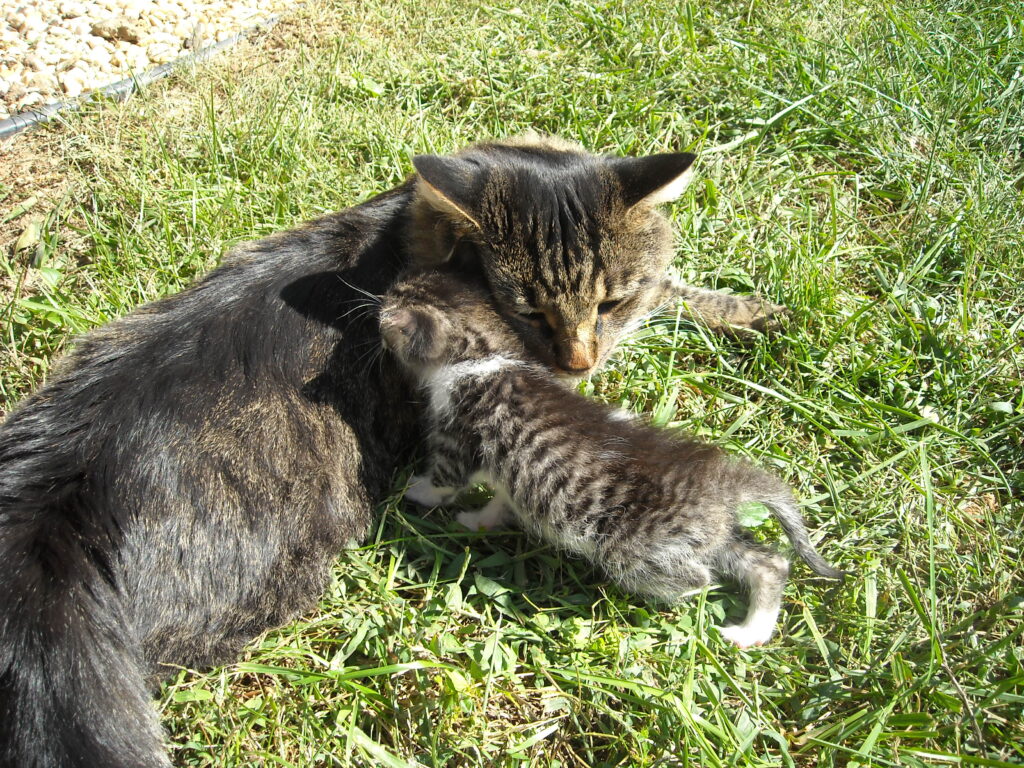
It was a bright day in Barney’s life when our neighbors rescued a little kitten from a creek and named him Trout. Although they intended Trout to be their kitten, Barney had other ideas. Trout became his little buddy. The two were inseparable but completely different. While Barney liked to roam, Trout never left our yard. They were pals for life and partners in keeping our house rodent-free.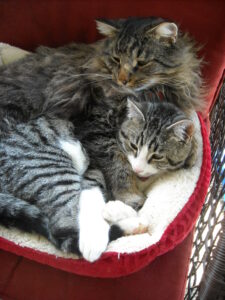
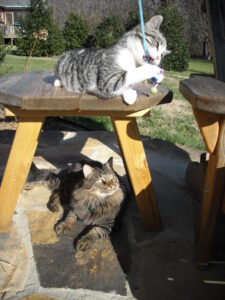
Trout died in June, a quick and terrible death. Barney has been dying ever since. His was a slow death from a broken heart.
This is probably the last photo we took of Barney, shortly after Trout’s death. His sadness shows.
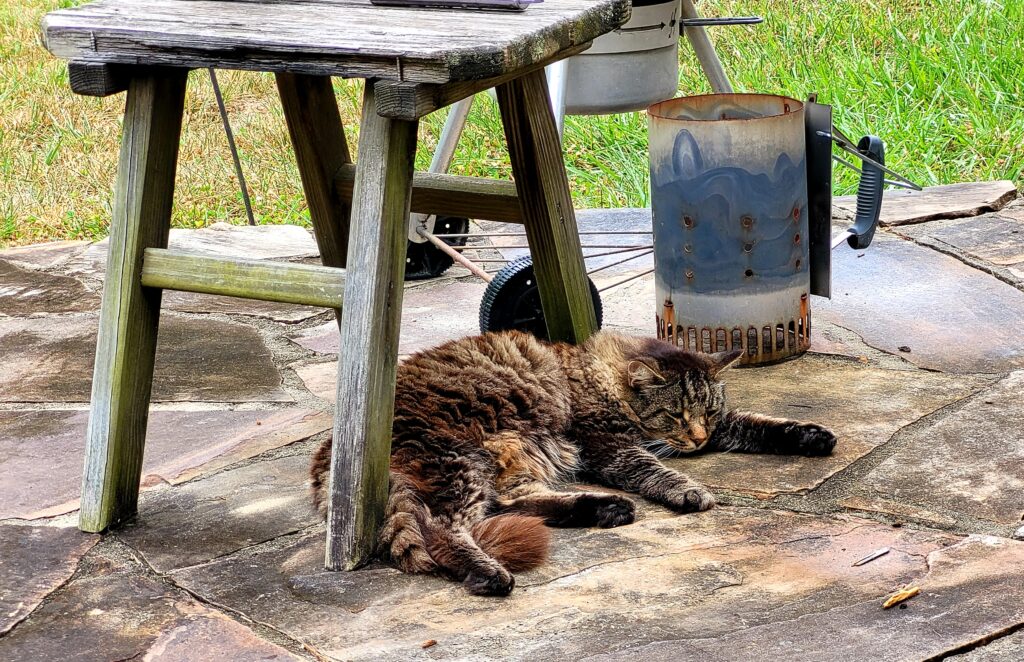 Barney steadily and slowly declined, until the last few days when his decline picked up speed. We’d been through this so recently, we knew the signs. His kidneys were shutting down. We scheduled an appointment with the vet, knowing I’d be the one to go because of Steve’s recent surgery, and knowing I’d probably come home alone.
Barney steadily and slowly declined, until the last few days when his decline picked up speed. We’d been through this so recently, we knew the signs. His kidneys were shutting down. We scheduled an appointment with the vet, knowing I’d be the one to go because of Steve’s recent surgery, and knowing I’d probably come home alone.
But that last afternoon was a beautiful sunny February day. I coaxed Barney down to his happy place, our patio, one last time. I tried to brush him–his favorite thing–but he was in too much pain and couldn’t sit still. So I started to walk, slowly and serpentine fashion, to the creek, another thing he liked to do with me. He followed! For a second, I thought, Maybe he’s going to pull through. Maybe the vet can save him.
I petted his sweet head, looked into his light green eyes and shared a long blink (cat language for “I love you”). We returned to the patio. Barney walked circles around Steve and I, said goodbye to Steve. And then he set off again, by himself, for the curve of the creek, in our neighbor’s yard. He walked slowly and purposefully. He never looked back.
As I watched my sweet cat walk off into the sunset (okay, it was only about 3:00 in the afternoon), I had a thought so bizarre I hesitated to say it out loud to Steve. But I couldn’t keep it to myself.
“Barney’s going off to die,” I said. I know cats prefer to die alone, but usually they crawl into the woods or under the house in the middle of the night. Barney just left, on his own terms, with us sitting right there watching him.
He never came back.
It was the perfect ending. He said his goodbyes and he walked off. He saved me the agony of putting him down. Was this a parting gift from Barney, or–as I think–the Lord’s sweet grace to me in the midst of a long season of loss?
I’ve had a lot of pets in my life, dogs and cats. If I told you how many cats, you’d label me as a Crazy Cat Lady, so I’ll keep that to myself. Suffice it to say, I’ve known a lot of different temperaments. No question about it: Barney was the sweetest pet I’ve ever had.
I miss him. I miss them both. 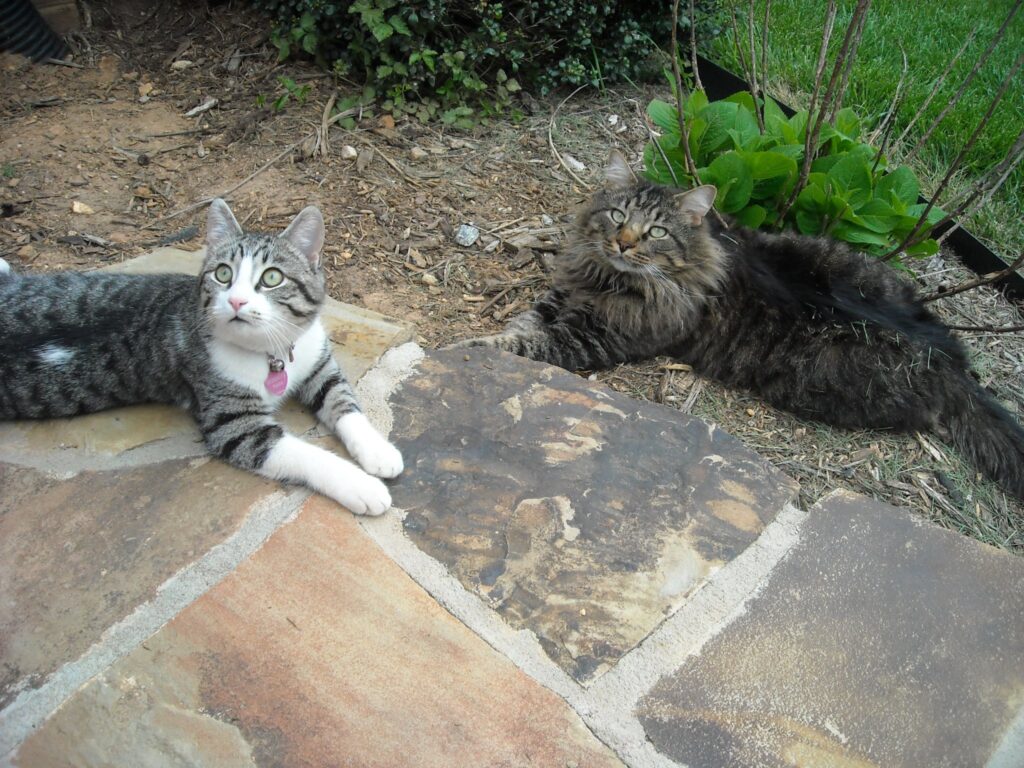
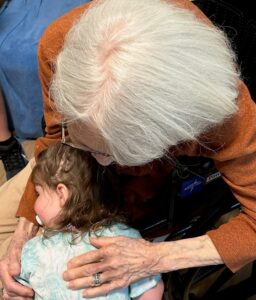 Every week, babies change. They grow. They develop. It’s exciting. Parents, grandparents, everyone marvels the first time the baby does anything. Smiles. Rolls over. Laughs. Recognizes their hand. Crawls. Stands. Each new word is reason to cheer. Each accomplishment, no matter how tiny, is met with enthusiasm. Videos are made and shared. Every week, if they are healthy, babies accumulate new skills in their repertoire.
Every week, babies change. They grow. They develop. It’s exciting. Parents, grandparents, everyone marvels the first time the baby does anything. Smiles. Rolls over. Laughs. Recognizes their hand. Crawls. Stands. Each new word is reason to cheer. Each accomplishment, no matter how tiny, is met with enthusiasm. Videos are made and shared. Every week, if they are healthy, babies accumulate new skills in their repertoire.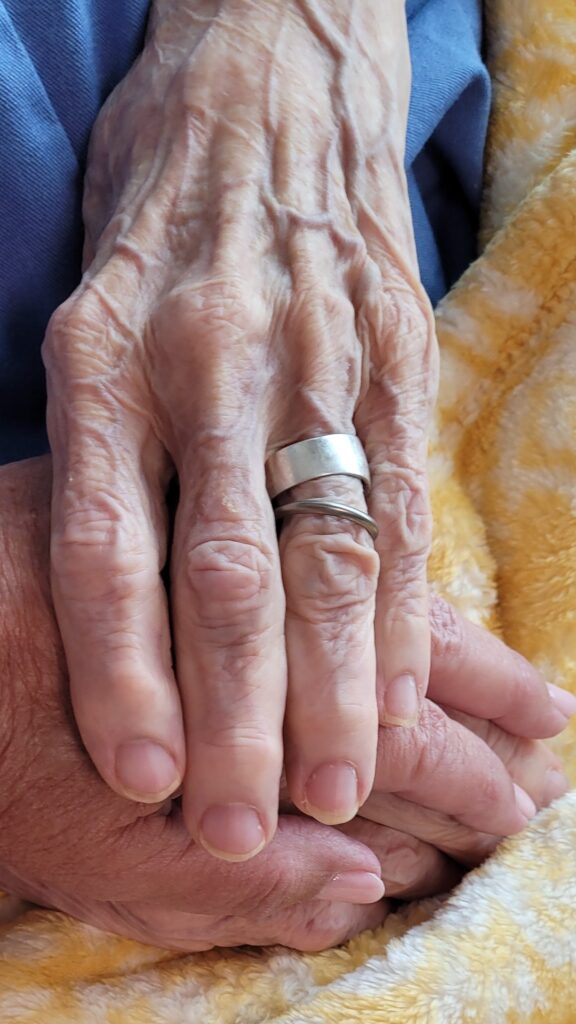
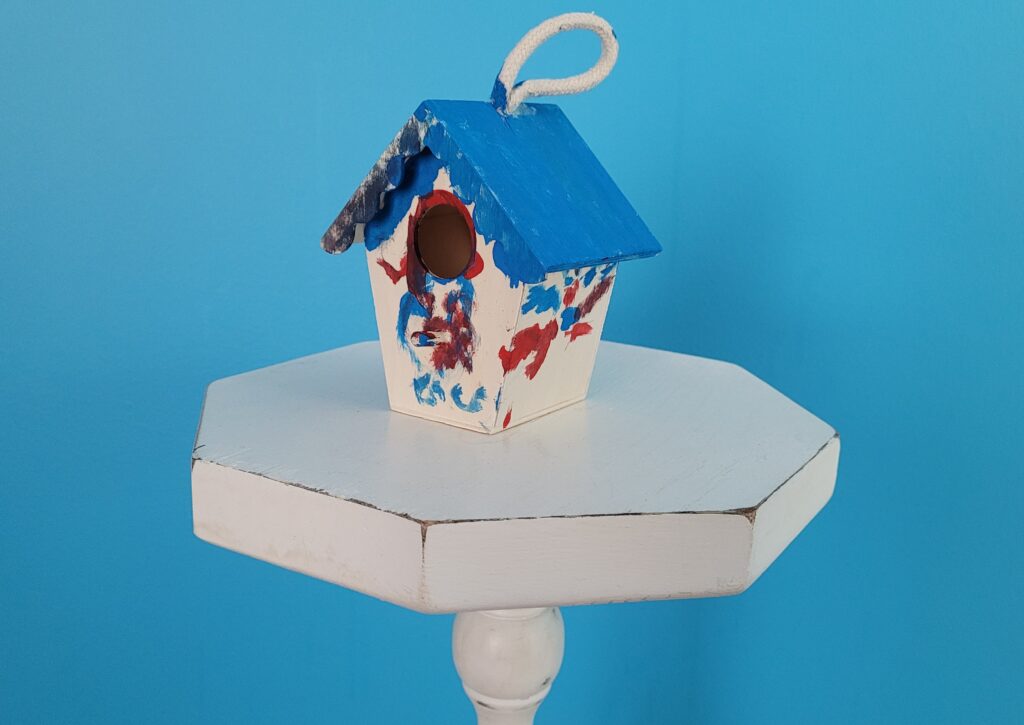
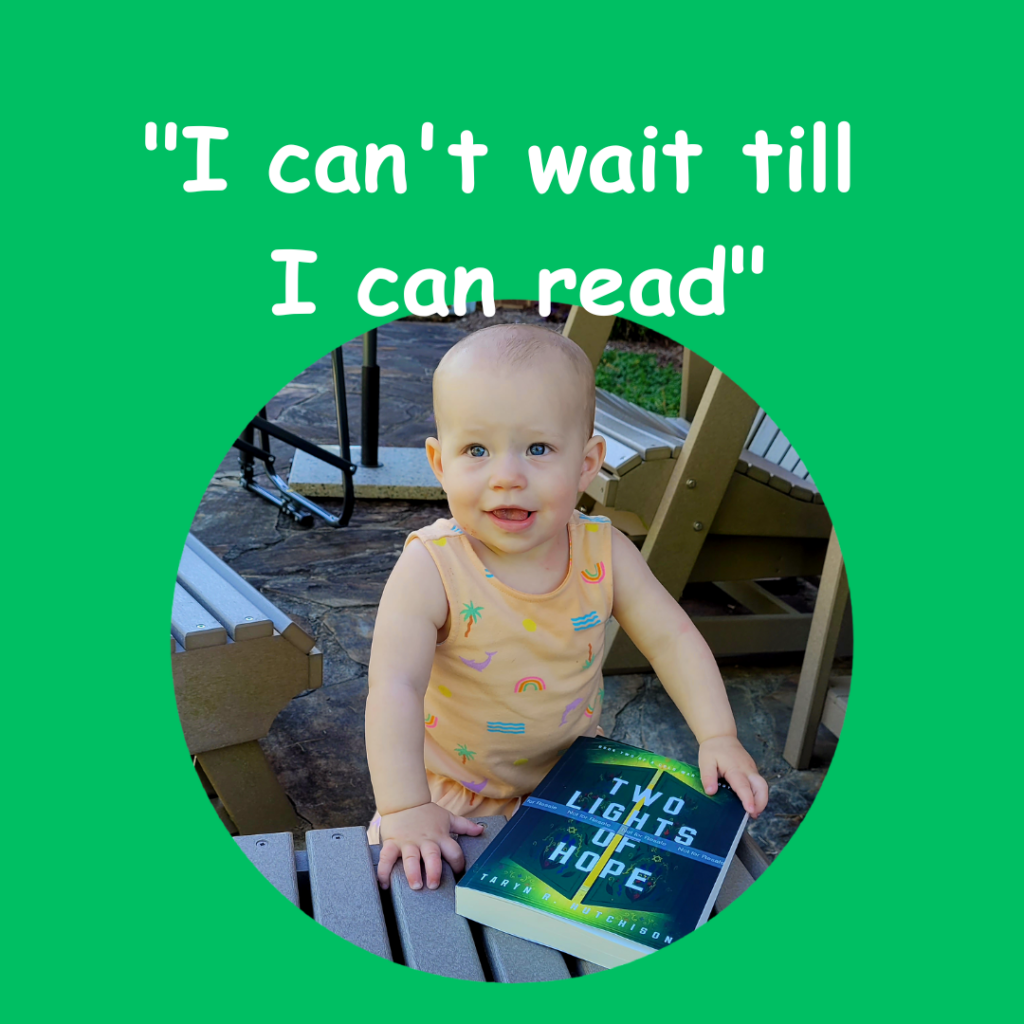 Announcing the long-awaited arrival of Two Lights of Hope, the middle book in A Cold War Trilogy! Like any parent with a middle child, I feared this middle one might be overlooked. Sequels often are. The newness of the firstborn has worn off, replaced by sheer exhaustion.
Announcing the long-awaited arrival of Two Lights of Hope, the middle book in A Cold War Trilogy! Like any parent with a middle child, I feared this middle one might be overlooked. Sequels often are. The newness of the firstborn has worn off, replaced by sheer exhaustion.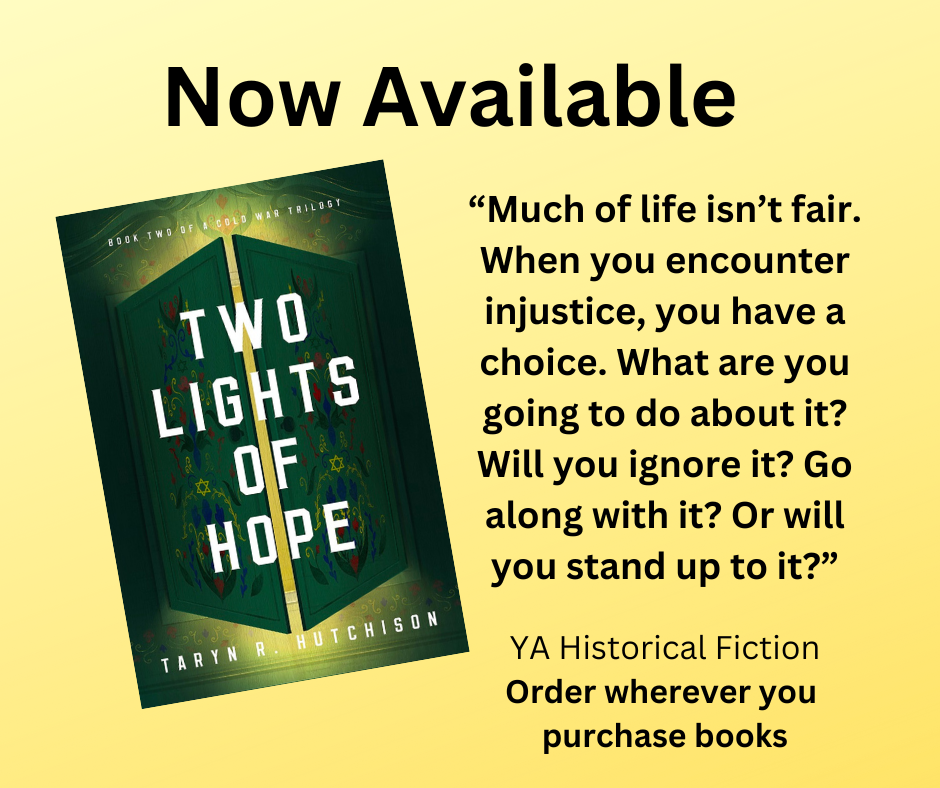
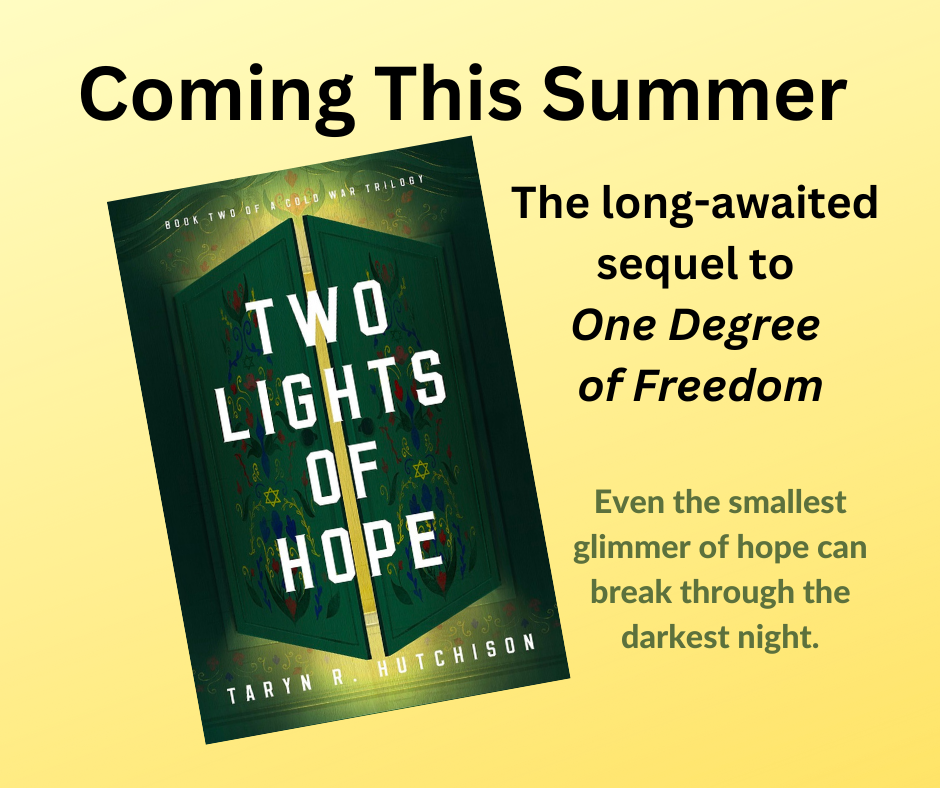


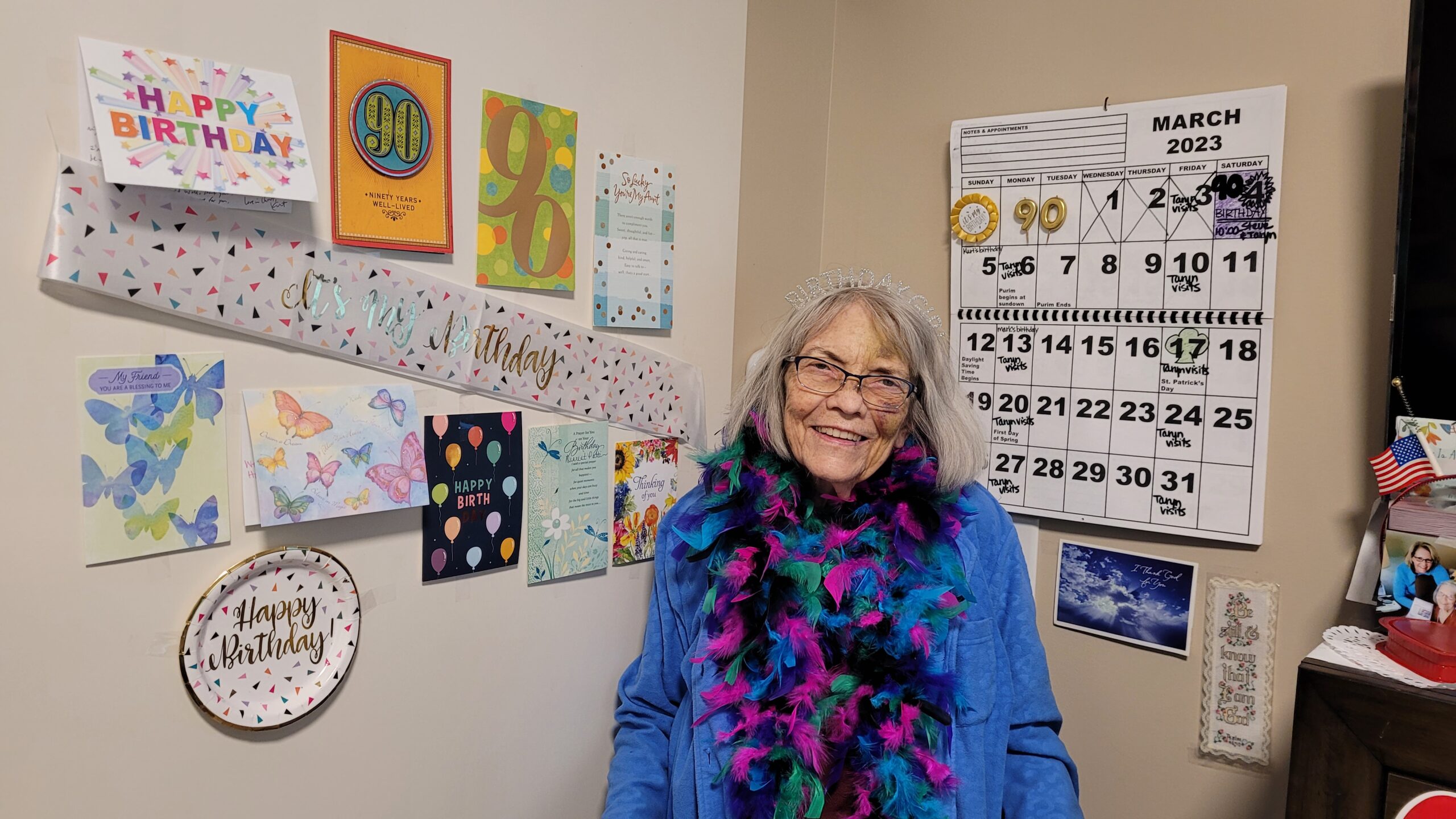
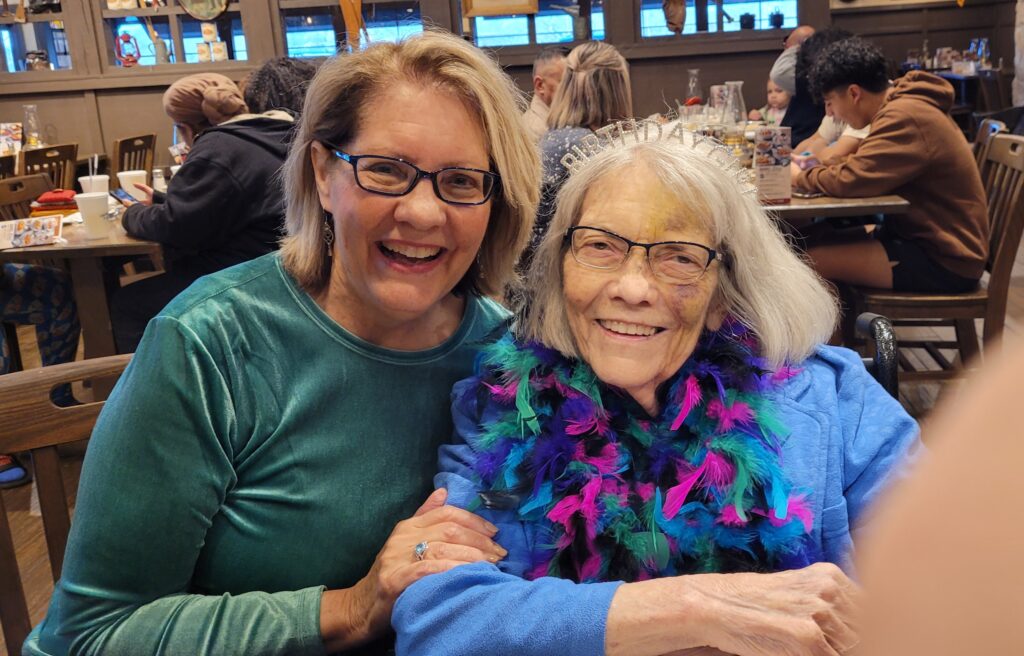

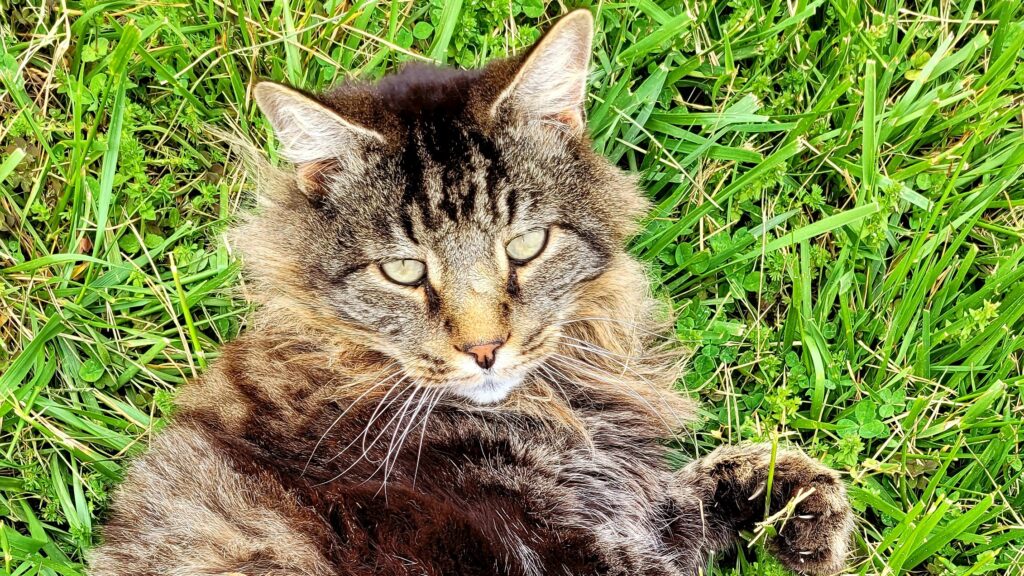





 Barney steadily and slowly declined, until the last few days when his decline picked up speed. We’d been through this so recently, we knew the signs. His kidneys were shutting down. We scheduled an appointment with the vet, knowing I’d be the one to go because of Steve’s recent surgery, and knowing I’d probably come home alone.
Barney steadily and slowly declined, until the last few days when his decline picked up speed. We’d been through this so recently, we knew the signs. His kidneys were shutting down. We scheduled an appointment with the vet, knowing I’d be the one to go because of Steve’s recent surgery, and knowing I’d probably come home alone.